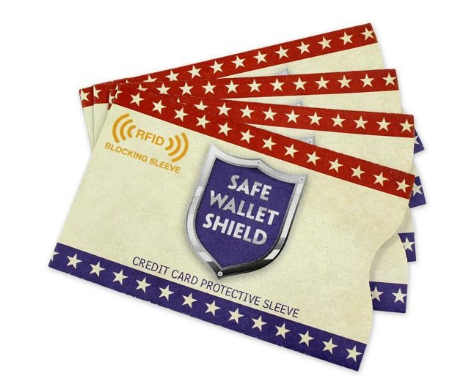 Many people have fallen into the comfortable and convenient belief that the government doesn’t keep tabs on you.
Many people have fallen into the comfortable and convenient belief that the government doesn’t keep tabs on you.
I mean, it makes sense; we go about our daily lives, using our smart phones, laptops, work computers, tablets and other digital devices and don’t think twice about it.
However, many people are going to be shocked by me revealing this: those digital devices you depend on and love so dearly actually open up the gateway for our government to spy on us and to potentially use everything we say/do on our devices against us.
They’re also able to gain a disturbingly invasive look into your personal life; and it’s all through the gadgets you’ve trusted all these years.
I’m about to show you which devices I’m talking about and how the government can access them.
It’s spooky, but I feel like it’s your right to know about these…
Creepy Ways The Government Keeps Tabs On You
1 – License Plate Cameras
These little cameras, placed at intersection lights, bridges and on cop cars, are able to photograph hundreds of license plates per minute. This information, which includes your license number, location of the picture, date and time can be used to help track your vehicle and, thus, you.
Police and other law enforcement keep this data for years, and there’s a high potential of a third party using this information to find you and your family.
2 – E-mails
If you’ve ever e-mailed a friend a picture of a cool shotgun or survival tool you found, you shouldn’t be surprised when you see advertisements of similar products featured on your computer after the e-mail is sent.
This is because e-mail sites like G-mail, Yahoo, etc. scan your e-mails for clues of what you enjoy talking about in order to target you with advertisements.
The FBI is also able to see this information,and can even access your saved pictures and other files.
Luckily, you can slow the process down by opting out of targeted advertisements, which limits their ability to collect data from you. Check your e-mail settings for how to turn this default setting to “Off.”
3 – Cell Phones
Have you ever gotten a new smart phone, and all your apps immediately ask you if they can track your location while they’re in use? Location tracking is an incredibly easy and invasive way to track where you’re standing at all times. Check your settings and turn these settings to “Off” if you don’t want to be tracked.
It’s not just location tracking either; the National Security Agency can also legally listen to your personal cell phone conversations if you are talking to someone outside of the country. They can also collect data about the times, dates, and numbers of every phone call you make.
4 – Cookies & Computers
Unfortunately, I’m not talking about the kind of cookies you eat with a tall glass of milk; I’m referring to the packets of data sent from your internet server to your browser. This data includes the websites you visit, the passwords you save, the items you buy while online shopping, and even potentially your credit card information.
This online data is stored and can be sold to various parties and monitored to understand exactly who you are, what your interests are and where you’re located.
It’s not just cookies that are the problem, either; hackers can hack into your computer system so that they can not only hear your personal conversations (through your microphone), but can also see you (through that webcam installed in your computer).
Think it’s not so easy for a hacker to get access to your computer? Watch this video, and then read our blog about how to keep your computer safe from hackers.
5 – In The Public
The Department of Homeland Security has spent TONS of money investing in high-tech computers that watch your every move on public streets and sidewalks. These can show footage of your every move while you’re just out doing day-to-day errands.
Not only that; if you’re a fan of public transportation, you might have seen the cameras installed in them in order to watch your every move. There’s even been talk about installing microphones on buses in order to track your conversations.
Here’s even more ways the government can track you:
Now granted that video’s a few years old; so here’s a video of some brand new technology coming out to keep tabs on you:
Now the question is, since we know about all these ways the government can track us, what do we do about it? Do we sit idly by? Or do we work to prevent it?
One of the ways we can each prevent our information from being tracked and known to the government and even other people on the street is by using an RFID Blocking Shield.
Let me put it simply; your debit and credit cards have a magnetic strip that any thief – from the guy on the bus to a government spy – can steal if they’ve got the technology to do so. By using a pocket-sized computer, anyone can casually hold their phone in the direct vicinity of your cards (whether they’re in your purse, pocket or wallet), and BOOM. They’ve got your credit card info.
Just like that.
However, if you’ve got an RFID Blocking Shield wrapped around your card, this sheath will prevent the hackers from getting anywhere near your valuable information.
This is because each shield contains a very specific alloy that blocks even the most high-tech pocket-sized computers from accessing your credit card info, leaving the thief left dead in their tracks, puzzled and unsuccessful.
The great thing about these sleeves (besides being a HUGE financial life-saver) is that they’re super lightweight, so they won’t take up too much room in your wallet, purse or pocket.
Plus, they come in packs of four, allowing you to cover two credit cards, your debit card, AND your company card, giving you the utmost protection at all times.
These RFID Blockers are one of the few ways we, as civilians, can protect ourselves from even MORE of our personal information being stolen from us.
That’s why it’s important that we take control of what we still own (like our financial info) in order to hold onto the money we’ve earned and that is rightfully ours. After all, the government takes enough out of our pockets; we need to hold on to the money that’s still ours while we still can.
Start protecting your credit card information right now by clicking here or on the image below.



